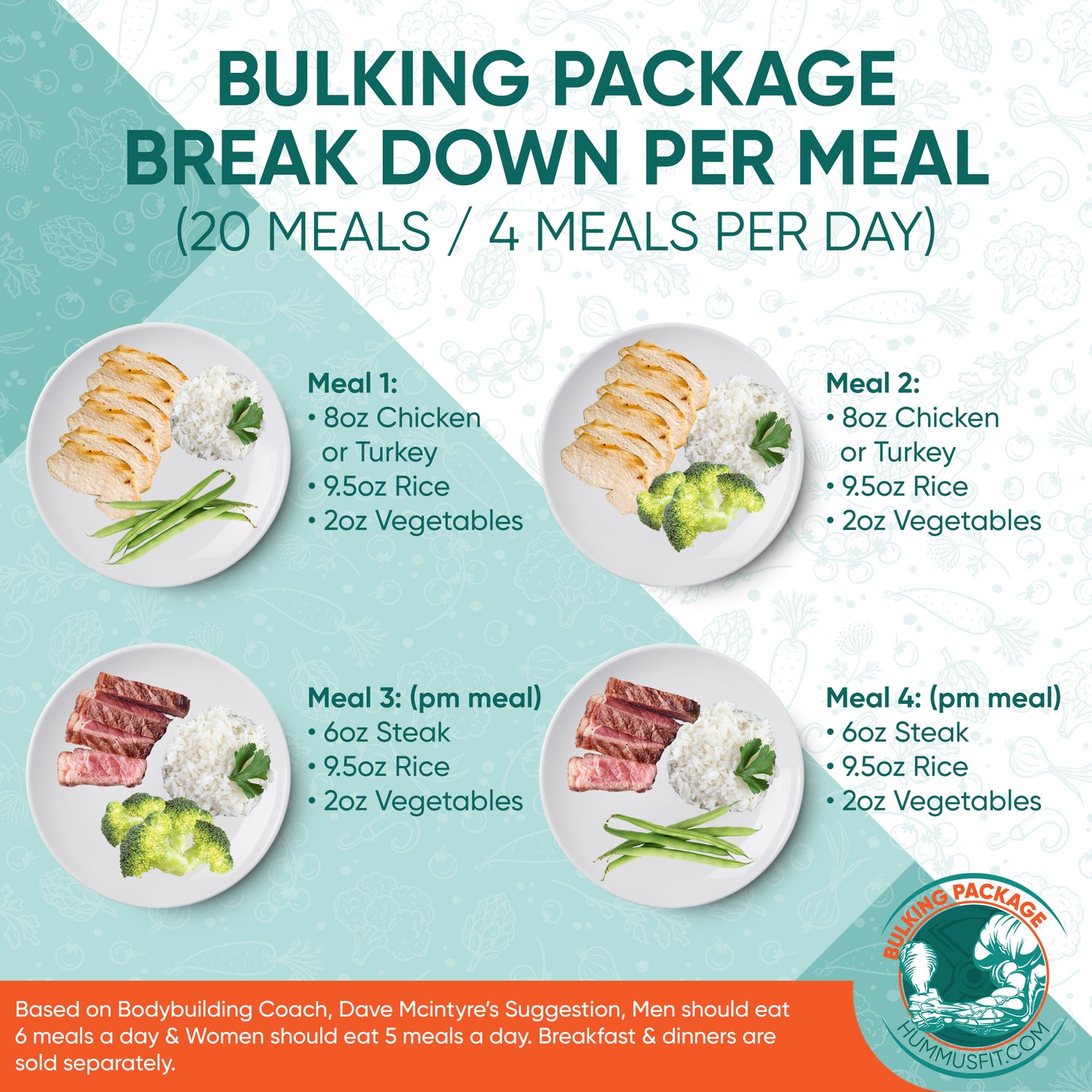Rise by Six: Your Daily Dose of Inspiration
Explore insights and stories that elevate your day.
More Than Muscle: The Secrets of a Successful Bulking Diet
Unlock the secrets to a powerful bulking diet and build muscle effectively. Discover expert tips and tasty recipes for your fitness journey!
Top 5 Nutrient-Dense Foods to Fuel Your Bulking Journey
When embarking on a bulking journey, it's essential to focus on nutrient-dense foods that not only provide the necessary calories but also deliver a wealth of vitamins and minerals to support overall health. Here are the Top 5 Nutrient-Dense Foods that can help you achieve your bulking goals:
- Quinoa: This complete protein source is packed with essential amino acids, making it an excellent addition to your diet. Quinoa is also rich in fiber, magnesium, and iron, promoting muscle recovery and energy levels.
- Avocados: High in healthy fats, avocados provide monounsaturated fats that help increase calorie intake without causing digestive distress. They are also loaded with vitamins E, C, and B6, which are crucial for recovery and overall health.
- Sweet Potatoes: These complex carbohydrates are not only tasty but are also rich in antioxidants, vitamins A and C, and minerals. Sweet potatoes provide the sustained energy needed for intense workouts.
- Eggs: Packed with high-quality protein and healthy fats, eggs are an excellent food for muscle building. They contain important nutrients such as choline and B vitamins that aid in metabolism and muscle growth.
- Greek Yogurt: This thick, creamy dairy product is higher in protein than regular yogurt and is a fantastic source of probiotics, which support a healthy gut. Its blend of protein and fats makes Greek yogurt a perfect snack for muscle recovery.

The Science Behind Effective Bulking: How to Bulk Safely and Sustainably
Bulking effectively is not just about consuming an excess of calories; it involves a scientific approach to nutrition and training that ensures muscle gain without undue fat accumulation. Effective bulking relies on a well-structured diet that emphasizes quality over quantity. This means prioritizing macronutrients: proteins, carbohydrates, and fats. Aim for a balanced intake, with protein being crucial for muscle repair and growth, while carbohydrates provide the energy needed for intense workouts. In this regard, consider measuring your daily caloric surplus—about 250 to 500 extra calories can facilitate gradual muscle gain while minimizing fat gain.
Additionally, safe and sustainable bulking includes monitoring your body’s response to changes in your diet and training regimen. Regularly assess your body composition and adjust your caloric intake as needed. Combining strength training with proper nutrition will maximize your results, allowing you to maintain an optimal balance of gains. Incorporating rest days into your routine is equally important, as this allows muscles to recover and grow. Ultimately, the science behind bulking lies in consistency, disciplined eating habits, and a well-planned workout strategy that fosters long-term success without compromising health.
Common Mistakes to Avoid on Your Bulking Diet
When embarking on a bulking diet, one of the most common mistakes individuals make is neglecting to track their calorie intake effectively. Many people assume that simply increasing their food consumption will lead to muscle gain, but without proper tracking, it's easy to overconsume unhealthy calories that contribute to unwanted fat gain. To avoid this pitfall, consider using a food diary or an app that allows you to monitor your daily macros. Setting clear, achievable goals for protein, carbohydrates, and fats will keep your bulking diet aligned with your fitness objectives.
Another frequent error is the lack of attention to nutrient quality. While it might be tempting to indulge in high-calorie junk foods, these options often lack the essential vitamins and minerals your body needs for optimal performance and recovery. Instead, focus on incorporating whole foods such as lean meats, whole grains, fruits, and vegetables into your meals. This not only supports muscle growth but also enhances overall health. Remember, a successful bulking diet is about quantity and quality.